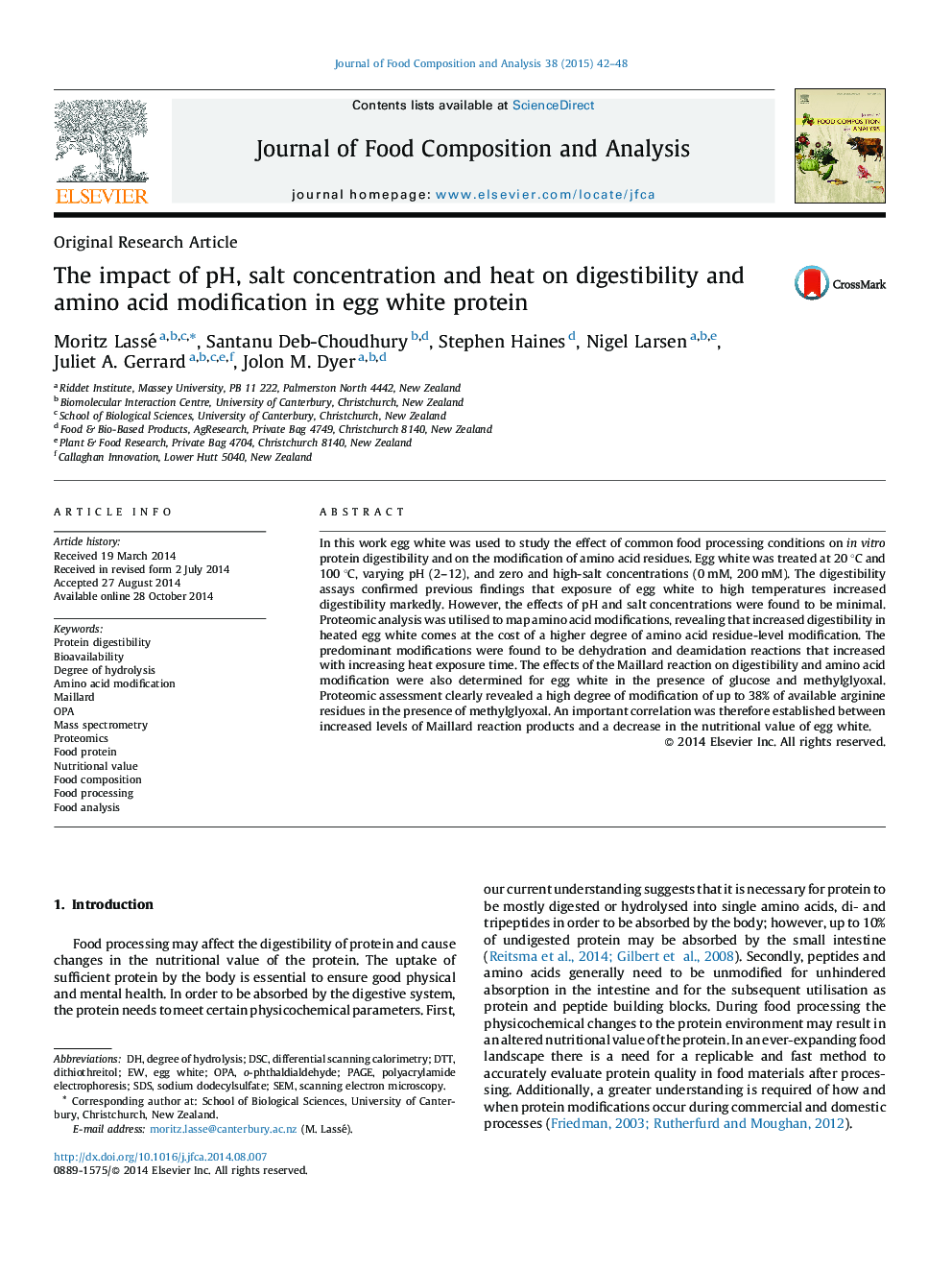| Article ID | Journal | Published Year | Pages | File Type |
|---|---|---|---|---|
| 1218147 | Journal of Food Composition and Analysis | 2015 | 7 Pages |
•Heating improves egg white digestibility at the cost of amino acid modifications.•Heating increases amino acid oxidation, nitration, deamidation, and dehydration.•pH and salt denaturation do not alter in vitro digestibility of egg white.•Maillard reaction attenuates digestion via cross-linking and protein glycation.•Tryptophan and phenylalanine are highly susceptible to oxidation and nitration.
In this work egg white was used to study the effect of common food processing conditions on in vitro protein digestibility and on the modification of amino acid residues. Egg white was treated at 20 °C and 100 °C, varying pH (2–12), and zero and high-salt concentrations (0 mM, 200 mM). The digestibility assays confirmed previous findings that exposure of egg white to high temperatures increased digestibility markedly. However, the effects of pH and salt concentrations were found to be minimal. Proteomic analysis was utilised to map amino acid modifications, revealing that increased digestibility in heated egg white comes at the cost of a higher degree of amino acid residue-level modification. The predominant modifications were found to be dehydration and deamidation reactions that increased with increasing heat exposure time. The effects of the Maillard reaction on digestibility and amino acid modification were also determined for egg white in the presence of glucose and methylglyoxal. Proteomic assessment clearly revealed a high degree of modification of up to 38% of available arginine residues in the presence of methylglyoxal. An important correlation was therefore established between increased levels of Maillard reaction products and a decrease in the nutritional value of egg white.
